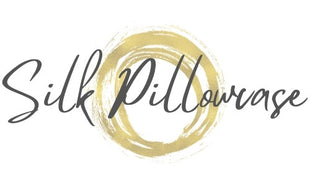Sight
Your eyes might close when asleep, but what you see before you fall asleep can alter your sleep quality. A symmetrical and soothing environment can reduce stress and eye strain before bedtime. Also a nice relaxing bath can really help with getting a good sleep.
Clean and De-Clutter
A messy bed rarely encourages a desire for sleep. The same goes for the rest of your room. Visual clutter increases stress.
It sounds simple, but a clean room can help you relax and fall asleep faster.
Keep It Dark
Your body follows a natural rhythm where light triggers waking and darkness induces sleep. Artificial light can trick your mind into thinking it's time to stay awake.
Keep your bedroom dark and turn off all lights within an hour of bedtime. Turn off electronics and reduce light exposure with blackout curtains. You can also try a sleep mask for optimal results.
Redecorate
Creating a safe, cosy space for sleep can reduce anxiety and influence the release of sleep hormones.
Choose warm, comforting colours. Add soft carpets and relaxing artwork. If you can, move stimulating objects like televisions or workout equipment to another room.
Touch
You might have had a favourite stuffed animal that helped you sleep when you were younger. Touch plays a vital role in our sleep habits. What you sleep with, and on, determines your level of comfort.
Invest in Your Bedding
You spend one-third of your life sleeping, and your bed is without a doubt the most important factor in your sleep quality. If you want to improve your sleep, then investing in high-quality bedding is non-negotiable.
Choose a mattress tailored to your sleep style and firmness preference. But, it's not just the mattress that matters. Change your sheets often and pick the best pillowcases for your head and neck.
Keep It Cool
If you live in a warmer climate, you know how difficult sleeping in hot weather can be. The ideal sleep temperature falls between 15 and 20 degrees Celsius.
If you have a problem getting too hot at night you should try a Mulberry silk duvet to keep you cool
This varies depending on the individual, but temperature extremes won't help your sleep.
Taste
Believe it or not, what you eat and drink throughout the day plays a role in sleep too. Timing, quantity, and what you eat and drink all alter your energy levels.
Avoid Caffeine
A cup of coffee in the morning won't hurt, but try not to drink caffeine after 2 p.m. Limiting your caffeine intake to the morning hours is ideal. Remember that some foods also have caffeine like chocolate.
Craving coffee but it's already late in the afternoon? Try some relaxing chamomile tea instead. Chamomile also reduces stress and can help you get in the right mood for bedtime.
Eat Right
You know diet and sleep intertwine, but what foods help the most with sleep? High-fiber and protein-packed foods help satisfy cravings and lead to easier sleep. Avoid fatty and processed foods.
Sugar, caffeine, and desserts of any kind are a no-go around bedtime.
Don't Sleep Hungry
Hunger stimulates cortisol, the stress hormone. A growling stomach keeps you awake.
On the flip side, overeating can put you into a 'food coma' but lead to poor quality sleep. Stick to a light, low-sugar snack to satisfy hunger. Some of the best foods to eat before bed include almonds, turkey, and other protein-rich foods.
Smell
A calming lavender bath with candles might be exactly what you need as part of your sleep routine. You don't need to indulge in an aromatherapy massage every week, but adding a few soothing scents can help you wind down from the day.
Use Aromatherapy
Studies have shown that certain fragrances like vanilla have a direct link with improved sleep. Others, like peppermint, stimulate the senses and keep you awake.
Another scent with proven relaxation properties: lavender. Add sleep-inducing scents to a diffuser or buy scented candles while avoiding stimulating scents.
Improve Air Quality
Whether you have allergies or not, good air quality leads to better breathing and better sleep.
Take care of any underlying smells and mould issues which can cause other health problems. Improving ventilation and reducing humidity makes for easier breathing, less snoring, and reduces allergy flare-ups.
Sound
Who doesn't want a quiet sleep environment? Achieving this is easier said than done. What's more important than noise reduction is keeping the level of noise constant.
Reduce External Noise
Some people can sleep through anything, but even they won't get the best quality sleep with lots of external noise.
Noise, even soft noise, can cause you to wake up from your slumber. Frequent sounds, loud or soft, can prevent you from falling asleep.
Try checking around the house for sources of noise.
Try a Sound Machine
If you live in a loud area or with children, you'll need something a little more preventative.
White noise machines create a constant, relaxing buzz for sleep. Don't want to invest in a machine? Listening to rain sounds on your phone works as well.
Other sound-proofing solutions include noise-cancelling headphones or a bedroom fan.
Creating the Perfect Sleep Environment
Give your senses the high-quality sleep hygiene they deserve.
The perfect sleep is only with the best sleep environment. From a dark room to soothing scents, you can create the cosiest bedroom for sleep.
Don't neglect senses like taste and hearing. Start creating your relaxing and healthy sleep routine today by checking out our soothing bedroom products!
